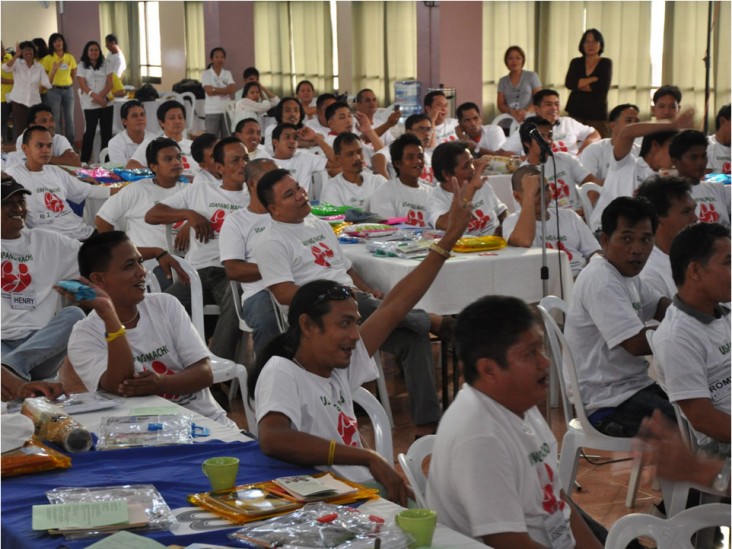
In the province of Albay, where 1.2 million Filipinos reside, around 90 women of every 100,000 who give birth die due to complications. Forty-six in every 100 births in the country are high-risk—born to mothers who are either too young or too old, with birth intervals of less than two years, or with more than three children. Many of these maternal deaths and much of this suffering could be prevented through comprehensive maternal health interventions, including family planning.
While pregnancy and childbirth are traditionally the domain of Filipino women, decisions surrounding these issues are often strongly influenced by their male partners.
Recognizing the role of men in household decision making, USAID spearheaded a congress on family health to encourage and reinforce male involvement in family planning and maternal and child health. The Alban Men's Congress, dubbed “Macho Talk: Responsible Father, Caring Husband,” took place in Tabaco City in 2010 with 110 male participants—local officials, teachers, farmers, fishermen, vendors and others.
The session engaged the men in discussing responsible parenthood, as well as myths and misconceptions surrounding modern contraceptives. The participants came up with individual plans to strengthen their role in improving maternal and child health, and to better address the needs of their family.
Good news travels fast: the success of the congress prompted Albay’s local government and private entities to replicate and support this male involvement initiative.
In 2011, in Camalig municipality, 25 male cement factory workers participated in the “Macho Talks at Work,” where they received information on birth spacing, responsible parenthood and maternal and child health. A coconut plantation and a company that exports abaca (banana fiber) products reached out to 200 fathers with its own version of the congress.
Yet another—“Macho Talks: Pedal Tricycle Drivers Are Responsible Fathers”—was organized for 67 couples to introduce the Philippines Department of Health’s three-to-five-year birth-spacing campaign and provide information on various methods of family planning in Tabaco City in 2011.
Informed and empowered, Macho Talk participants support their partners and peers in the use of family planning methods and timely maternal and child health-care services. Committed to further promoting male involvement, Tabaco City now includes funds for annual “Macho Talks” in its budget. These are aimed at reaching more fathers with key health messages and encouraging shared parenting responsibilities and intra-family communication that will improve the overall health of local citizens.







Comment
Make a general inquiry or suggest an improvement.